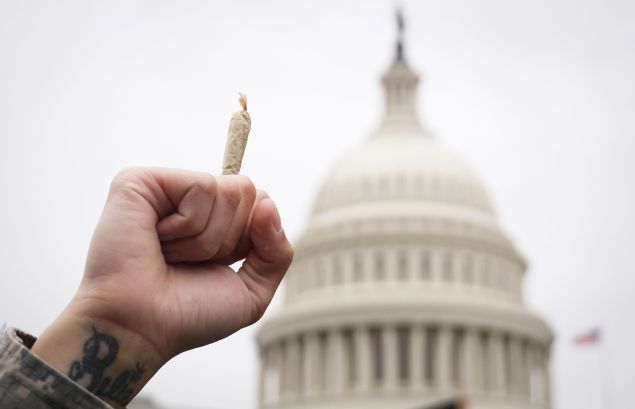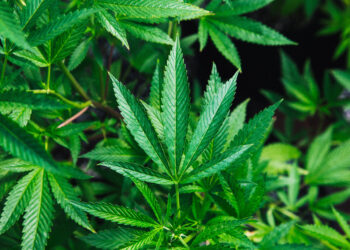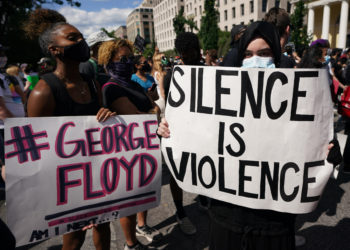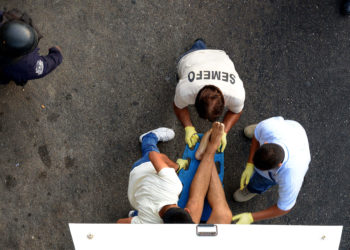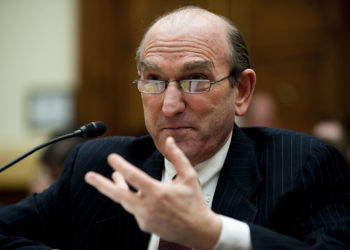In November of 2014, the residents of Washington D.C. passed a ballot referendum legalizing marijuana. But the U.S. Congress, which retains a degree of municipal power in the district, passed a measure banning commercial sales of the drug, creating a strange legal grey area that persists until today.
For a D.C. resident who is at least 21-years-old, it is legal to possess two ounces or less of marijuana and cultivate up to six marijuana plants on private property. Though it is technically illegal to sell the drug, it is possible to transfer one ounce or less of marijuana to another person, so long as there is no payment made or any other type of exchange of goods or services.
In May, Washington D.C. Mayor Muriel Bowser, launched the petition “Safe Cannabis DC,” following the announcement of a proposal to legalize and regulate recreational marijuana dispensaries in the district.
Bowser has two primary goals – providing legal clarity and safe, legal options for the district’s marijuana users, and directing the profits from legal cannabis away from the black market and into local communities, particularly predominantly black and brown ones that have been disproportionately harmed by the war on drugs.
“We want to be able to regulate, we want to be able to make sure we are collecting our fair share in taxes, we want to invest those taxes in ways that affect communities that have been disproportionately affected, and we want to train and hire D.C. residents,” she told the Washington Post.
“For far too long the possession of marijuana has been a pipeline to prison, especially for black men in DC and across the nation. Today, we are taking a bold step to replace that pipeline with a pathway to prosperity,” she added.
Racial Injustice
In 2017, over 650,000 Americans were arrested for cannabis-related crimes per the FBI. And According to the ACLU, the national disparity between white and black people in arrests is nearly 4:1, despite the fact that white and black Americans use the drug at about the same rate.
“The history of marijuana criminalization is heavily rooted in racism. The racial disparity in arrests for marijuana largely mirrors the racial disparity overall in over-policing,” Justin Strekal, Political Director of the National Organization for the Reform of Marijuana Laws – NORML – told The Globe Post.
The grassroots marijuana consumers lobby organizes to ensure that individuals will no longer be treated as second class citizens for the mere choice to consume cannabis for personal or medicinal purposes.
Righting Wrongs
For Strekal, legalization offers a path towards righting the racial injustices that have characterized marijuana prohibition.
“The legalization of marijuana is one easy approach to begin to heal the rift between communities of color and law enforcement, but it is not a panacea,” he concluded.
Legalizing marijuana in D.C. will not end racial disparities, but it can take a significant tool away from law enforcement that’s been used to arrest black and brown people at startling rates, fueling mass incarceration.
“Marijuana reform has to be coupled with policing reform, economic empowerment of communities, and a real acknowledgment of the systemic oppression faced by marginalized communities in the U.S.,” Queen Adesuyi, Drug Policy Alliance’s National Affairs coordinator told The Globe Post.
The policy coordinator explained that revenue from marijuana legalization gives the U.S. an opportunity to right the wrongs of prohibition and reinvest in communities that have faced significant economic and social harm from over-policing and mass criminalization.
A Powerful Testament
In this frame, the story of Norbert Pickett and his medical cannabis dispensary, Cannabliss, is a powerful testament to these possibilities.
After a car accident in 2012, the former colligate basketball star Pickett was left permanently disabled, undergoing 18 procedures and five major surgeries on his spine. He was given different pain medication and muscle relaxants in order to get through the day, including prescription opioids.
Recognizing the serious dangers associated with opioids, he ultimately transitioned to medical marijuana.
“It was much more expensive than it was in Los Angeles. I was complaining to my friends about therapies that the prices were too high here in the district. And then that the dispensaries had to lower their prices for patients,” Pickett told The Globe Post.
Pickett heard there was a medical dispensary license available in the D.C. southeastern neighborhoods Ward 7, and Ward 8. In less than seven months the former athlete bought an entire building on Sheriff Road, which for over 50 years was located the famous liquor shop Dave Brown.
“My main goal was I needed to do something to help patients to lower the price. So that’s why I got into the cannabis industry,” said Pickett.
Opened in Denwood, Southeast D.C. on July 14, Cannabliss has registered 86 patients and hired 22 people – half of them coming from the neighborhood – including approximately 20 black and brown people, and 11 women.
“I made it a point to give people opportunities and I hope that they go off on one day maybe when they will have their own cultivation facilities or processing facilities or dispensary. That’s really my goal,” Pickett said.
His future projects include a care facility next to the cannabis dispensary, and a non-profit organization, Patience for Safe Access.
So far, thirty-three states and the District of Columbia have passed laws legalizing medical marijuana. The District of Columbia and 11 states – Alaska, California, Colorado, Illinois, Maine, Massachusetts, Michigan, Nevada, Oregon, Vermont and Washington – have adopted wide-ranging laws legalizing marijuana for recreational use.
More on the Subject
Beyond These Walls: Social Control and Criminal Justice in America [Part I]


